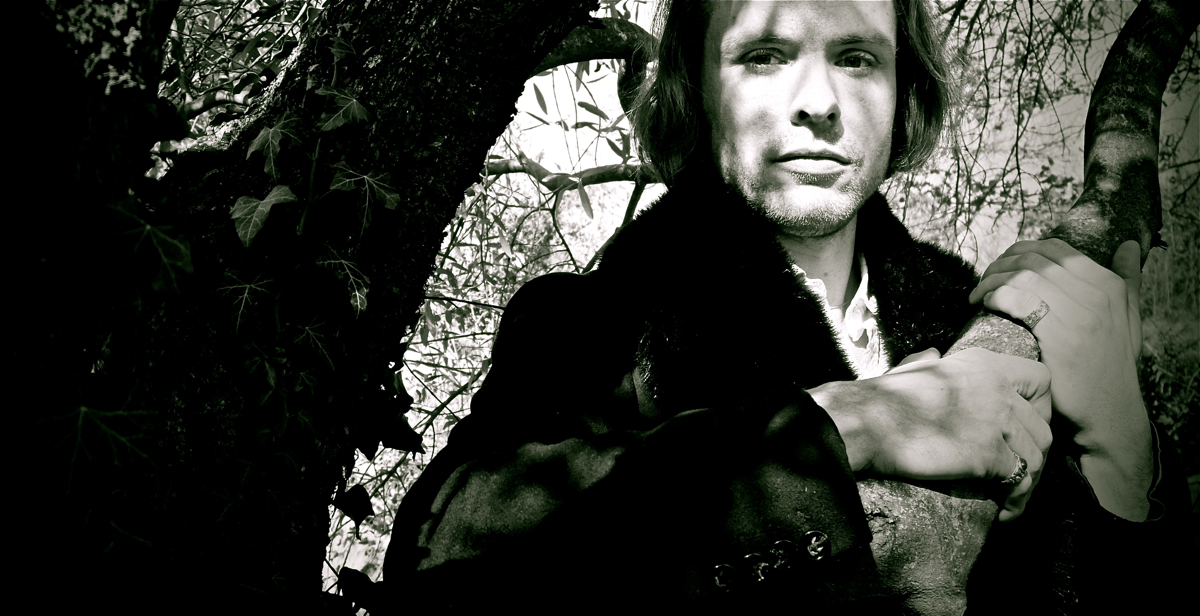The orchestral compositions by full time composer, Martin Romberg, are some of the most beautiful original Tolkien music I have ever heard. When I first heard about his music I was very excited to hear what it sounded like, and I can honestly say that each and every one of my expectations were met. It’s almost as if I can envision the elves of Middle-earth dancing in front of my eyes. Martin has based his last works on folk legends and fantasy literature, with Tolkien’s legendarium included. He has worked as an arranger for a number of ensembles and orchestras, including the electronica/black metal cult band, Ulver. You can find out more about Martin on his official website.
J.R.R. Tolkien showed us the path in our own time by allowing myths to be created anew; he called it “mythopoeia” and realized it in his carefully constructed fantasy worlds. I believe there can be a great potential for a classical music forged out of the same principles.
Middle-earth News: Tell us a little about yourself. How did you become interested in music and Tolkien?
Mark Romberg: The general music interest must have been there earlier than I can remember, but the certainty to want to be a composer came around the age of fourteen. There was absolutely no doubt in my mind as to what I wanted to do in life, and has never been since. Around the same period, I finished reading The Lord of the Rings for the first time. I see that there might be a connection, because there is this confrontation with death and transfiguration into the “other world” when the company set sail for Valinor at the end of the book. This metaphysic aspect shook me at the time. At the same time, music is the most metaphysical art form there is. It’s about grasping eternity and overcoming death, or at least the fear of it.
M-e News: What is it about Tolkien’s work that inspires your creativity?
MR: I did not dare touch Tolkien related subjects until long after my studies. My professors strongly discouraged such inspirational sources for music, being too “adolescent” and “popular” in their opinion. However, I doubt any of them ever opened a single book by Tolkien. At its core, this literature touches eternal themes spun around life and death and humanity’s solitude on this planet. More than anything, I also recognise a certain melancholic longing for “the other world,” or the world of faerie, so wonderfully described in Smith of Wootton Major. To me, Tolkien’s works are basically all about this longing in the end, and I find that it pushes the soul towards creativity, towards creation.
M-e News: Is there a particular “voice” in Middle-earth that you most identify with, found the most challenging, or were excited about?
MR: I have a great weakness for the elves, and perhaps, more than anything else, the sombre Fëanor from the early Silmarillion mythology. He was a gifted but very proud craftsman who, in his core, strived for freedom and independence from any superior being, including the Vala. When he found himself tricked in to a corner because of various circumstances, his individualistic moral principles obliged him to take [a] quite dramatic action. He was some sort of freedom fighter who turned half evil. I don’t agree with his actions, but I recognise his internal conflicts. That character would so deserve an opera written about him.
M-e News: What kind of music might we be surprised to know is in your playlist/ipod/phone etc.?
MR: I listen, and have always listened to a lot of electronica: Massive Attack, The Future Sound of London, and similar stuff. Recently, I have begun working together with such electronic groups as an orchestral composer, the Norwegian cult band, Ulver, being the last. I feel strongly inspired and enriched by these kinds of cooperations.
M-e News: You’ve done quite a few projects relating to J.R.R. Tolkien, dating back to 2008. I noticed that the majority is based off of The Silmarillion. Is it safe to say that that is your favourite Tolkien book?
MR: Yes. I remember I bought that book from an abandoned and quite filthy bookshop in west India. I read it utterly alone in a literarily abandoned hotel in Goa with rain dripping down through the ceiling and spiders and snakes crawling around my feet. It blew me away. The Silmarillion is by far the most ambitious work in terms of mythic fantasy I know about. The brilliance is that it is mythic, but fresh and understandable. Traditional mythic scriptures can, as we know, be a hard and dry read, and it’s much more difficult to get this certain mythic “energy” out of them. The brilliant thing about The Silmarillion is that it is new, but it transports an “old” energy. As if it were written a thousand years ago, but then again is not.
M-e News: Besides the commissioned work, have you created any Middle-earth music for yourself? If not, have you planned/thought about it? Any particular stories/characters that interest you?
MR: All my Middle-earth music is actually half commissioned, half out of personal choice. When someone commissions a piece, I sometimes propose a Tolkien related subject, and people most often don’t mind. Then there is the question about an opera based on The Silmarillion. I think a cycle of operas based on The Silmarillion would be the greatest thing since “The Ring” cycle of Wagner. One needs to find an opera house that is visionary enough to take on such a project.
M-e News: What’s next? New projects or Middle-earth based?
MR: There are two projects I would really see fulfilled in the next years. The first is the completion and recording of my orchestral Silmarillion cycle. Two pieces have been written for and performed by French orchestras. The third is yet to be done, but a southern French orchestra has already said that they would be interested in doing the CD. I am certain this project would find a lot of interest in the US, if I could figure out how to sell it there.
M-e News: Have any favourite tracks from the LOTR and/or Hobbit films?
MR: I thought there were a lot of nice pieces including choir in the first three films. I was however quite disappointed by The Hobbit, finding the music inexplicably uninspired. In general, I am a little perplexed that the music for the Tolkien films were not done by a more intense type of composer, as for example John Williams or Alan Silvestri or even Hans Zimmer.
M-e News: Aside from creating (amazing!) music, what do you most enjoy doing?
MR: My personal definition of bliss must be to sit with my family in front of our fireplace with a glass of real good red wine and some black salty liquorice and ponder ambitiously about life. Then, there is our ancient southern French stone house from the eighteenth century where we live, that I am working with and restoring constantly. I love working with my hands–with wood and stone and iron and all sorts of natural, brute materials. I guess it’s about staying connected with the earth and all that comes from it, as Tolkien would perhaps have put it.
M-e News: Where can people find/download/purchase your music?
MR: I have two CDs with music for solo piano on iTunes/Amazon for sale. The first one is called “Valaquenta, Tableaux Fantastiques” and consists of my own (partly Tolkien inspired) music. The second CD, which came out last year, contains my piece “Earendil the Mariner,” breathtakingly performed by the lovely Alexandra Silocea on her last album “Sound Waves.” Next CD is coming up in October, not Tolkien related, but still interesting for any fan of fantasy: “Witch Mass” for choir a capella. These pieces are based on ancient Etruscan and Norse texts. I’ll be working intensely with the edit of that recording in the next months.
To listen to Martin’s music, head on over to his website and click on the button on the left that says “play.” You will not be disappointed! In fact, I think I’m going to listen to “A Elbereth Gilthoiniel” right now.



